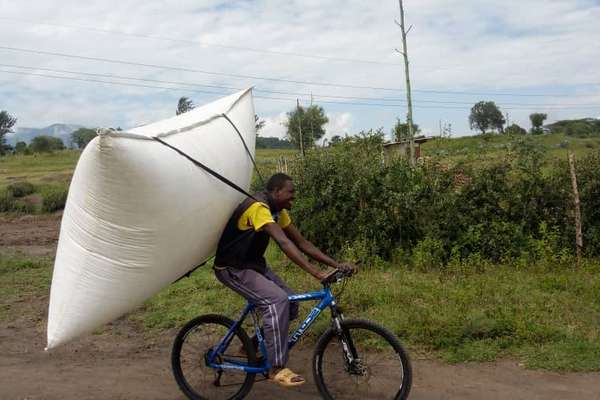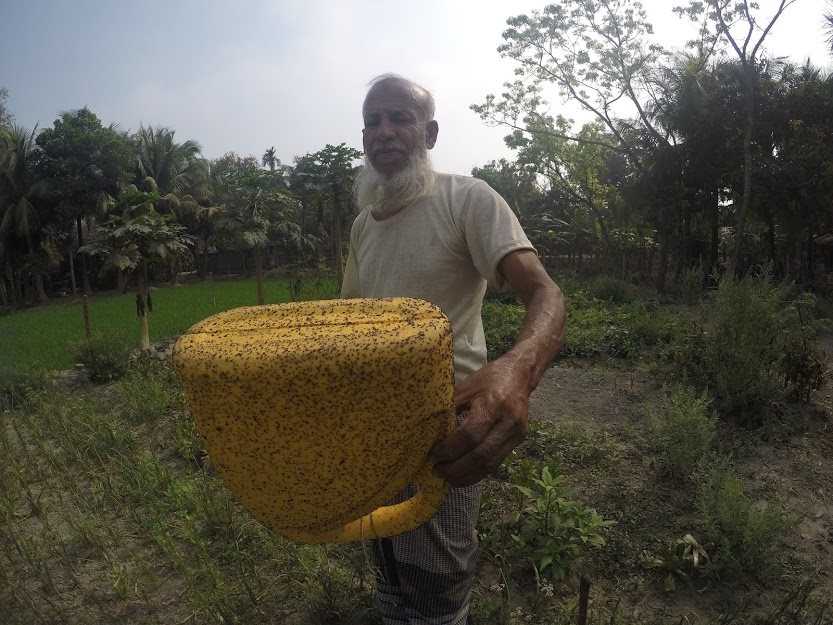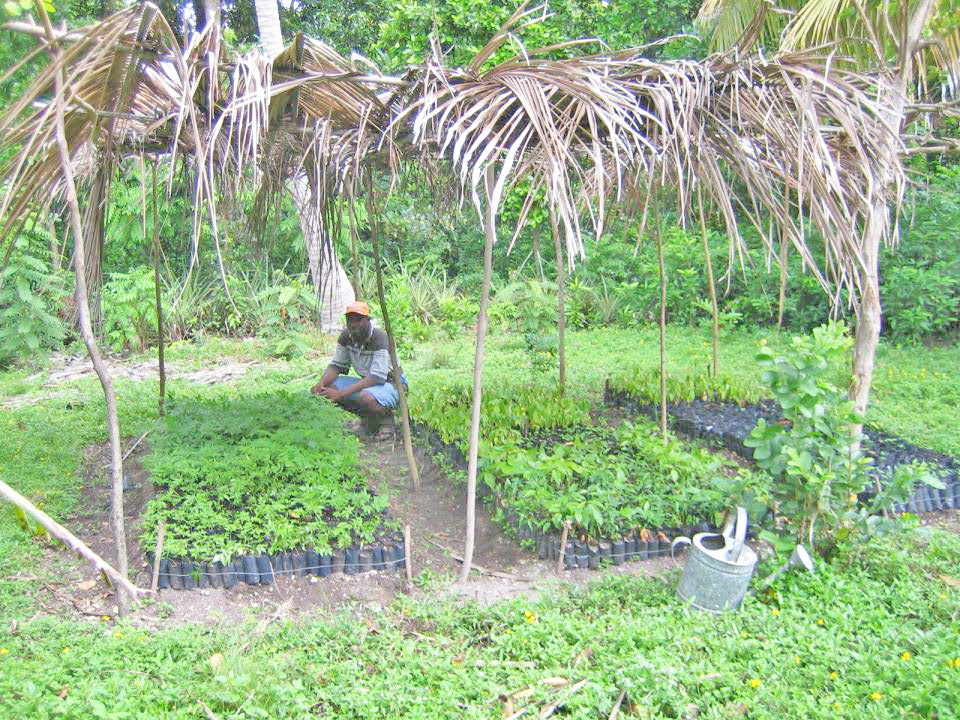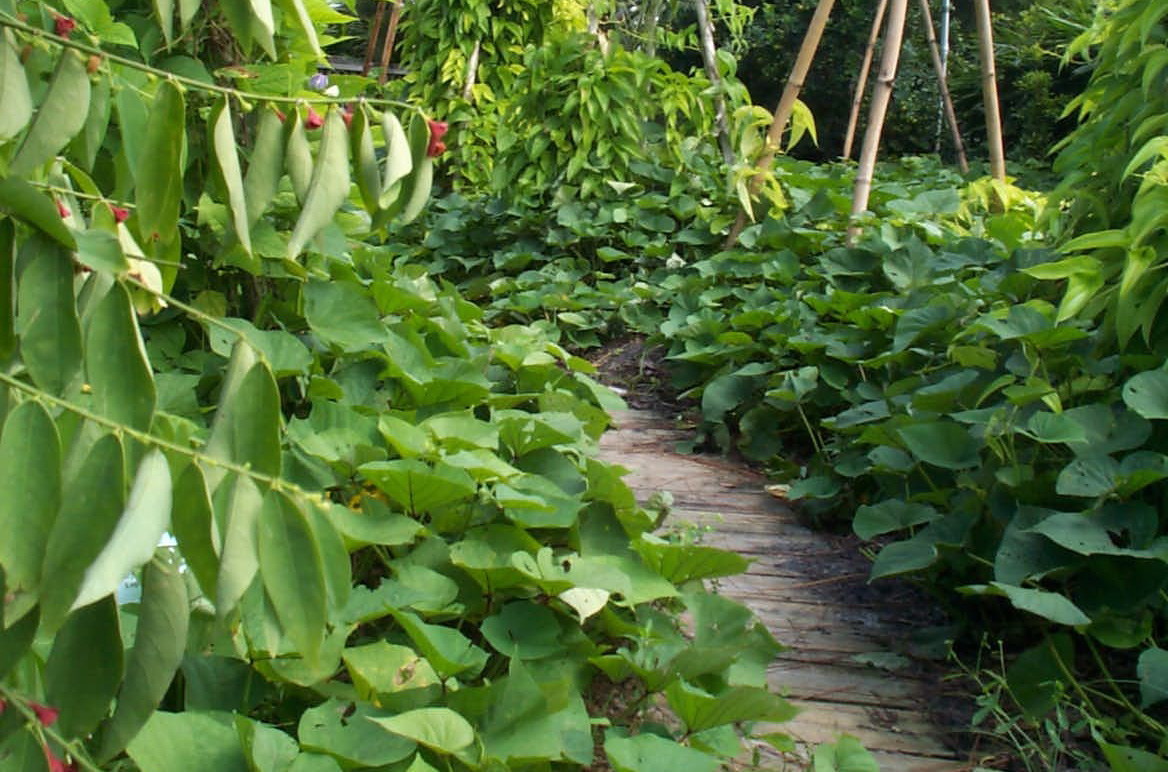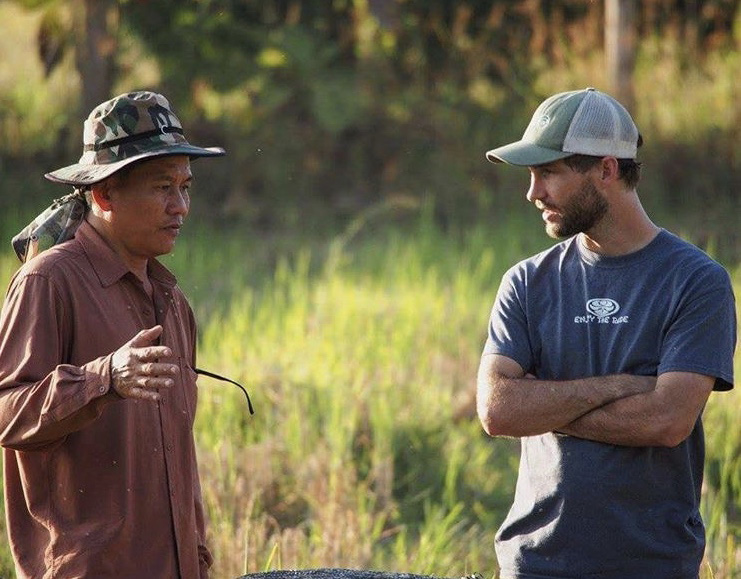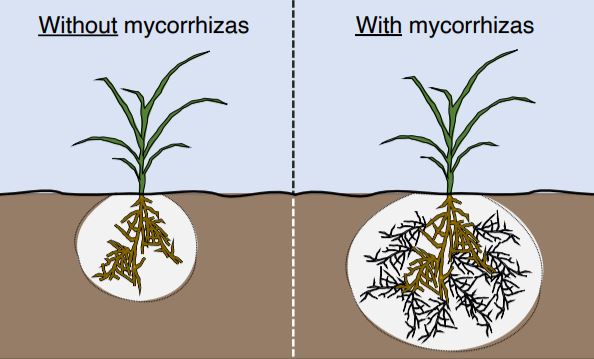ECHOcommunity更新
East Africa Note 7 Now Available 2021-04-21
In this issue:
- Families Benefited with Dairy Goats Project
- A Research Project: Packed Biogas in Bags
- Green Manure/ Cover Crops: jack bean
Packed Biogas in Bags: a research project
Harold Msanya
Excerpt:
Evelyn Mguo’s family is a consumer of bagged biogas who participated in phase one of the research project –‘Peer to peer’, a business model to test the viability of retailing methane gas in portable bags, from the farm gate of a biogas digester owner for distribution/sale to a neighbor. Evelyn says,
Both charcoal and firewood are difficult to access during the rainy season. I rarely use charcoal and firewood to cook local foods such as Makukuru and Ndizi. I grew up in a family that used firewood as the only source of energy and hence I used to believe that certain local foods taste better if they are cooked using firewood. I have now used the bagged biogas for three weeks and in my opinion it is a good option. I have managed to cook all types of foods that I used to cook using LPG. One (1m³) bag lasts 3 to 4 days and if it can be obtained for Tsh 2,000 per bag, it means I will cut down the cost used for LPG and other sources by almost 50%. My only request is for the project team think about how to package it in larger quantities so that it can last longer for at least seven days or more.
Announcing the ECHO East Africa Symposium on Sustainable Agriculture and Appropriate Technology 2021-04-14
28th-30th September 2021
You are cordially invited to join us for the 6th ECHO East Africa Biennial Symposium on Sustainable Agriculture and Appropriate Technologies 2021. We hope that you will make time to gather online with us at this very important and effective event for learning, information sharing, and networking for those working and serving in the East Africa Region. Participants are encouraged to register online for a $20 registration fee and that we welcome donations from good-willed individuals to help those who cannot pay this fee.
EDN #151 Now Available 2021-04-07
In this issue:
- Insect Pest Management: Options for Monitoring Pest Populations
- From ECHO's Seed Bank: Apios americana
- Echoes from our Network: Subscribe to ECHO Asia Notes!
- Books, Websites, and Other Resources: Review of Agroforestry Design ToolTM
Insect Pest Management
Annie D. and Stacy Swartz
Excerpt:
You can accomplish active sampling in a variety of ways. Sweep netting is one way to estimate an insect population throughout an entire field. To construct a basic sweep net from local materials, take a light-colored cloth sack, add a firm wire ring around the opening (30 to 38 cm diameter), and attach it to a stick or pole. Sweep nets work best for low-lying crops such as rice and other small grains, or non-vining beans before they flower and fruit—plants that are tough enough to handle the damage without losing fruit or too much leaf mass. Sweep nets also work best for insects that dislodge easily from the plants.
NEW Technical Note # 97 Small-Scale Nursery Management 2021-03-30
Cultivating plants, sharing seeds and cuttings with neighbors, and seeking better crop varieties are as old as agriculture. We use the word “nursery” for places where we care for and nurture things that are precious and vulnerable, like children and plants. Creating habitats to grow healthy seedlings is an integral part of the farming cycle, an important contribution to a thriving community, and both a rewarding and challenging business opportunity.
A nursery can be as small as a farmer’s seedbed for the immediate planting of a single crop, or as large as a complex business with hundreds of species and varieties for sale to the public. This Technical Note describes important aspects of planning and running a small nursery to supply trees and other perennial plants for personal or community use. Content is targeted towards agricultural practitioners working with small-scale farmers in tropical and subtropical climates. Included in the document are comments and insights from people with extensive experience in operating tree nurseries in parts of Central Africa (Roy Danforth), Madagascar (Dan Turk), Guatemala (Dwight Carter), and Haiti/Nicaragua/Indonesia (Rafael Flores).
Asia Note #45 Now Available 2021-03-08
EDN #150 Now Available 2021-01-20
In this issue:
- Perennial Vegetables and Nutrition
- From ECHO's Seed Bank: Factors to Consider when Selecting a Pigeon Pea Variety
- Echoes from our Network: 2020 ECHO International Agriculture Conference
- Books, Websites, and Other Resources: ECHOcommunity Mobile App Announcement
Perennial Vegetables and Nutrition
Eric Toensmeier
Excerpt:
We were pleased to learn that perennial vegetables (PVs) have excellent potential to address nutrient deficiencies. An impressive 154 of the 240 PVs for which we had nutrient data were superabundant (“very high” or “extremely high”) in at least one nutrient, and frequently in more than one. In fact, 23 species (10% of PVs for which we found data) were superabundant in four or more key nutrients needed to address deficiencies! We were especially interested to note that trees with edible leaves were superabundant in more nutrients than any other type of PV.
Announcing the ECHOcommunity Mobile App 2020-11-19
We are excited to announce the immediate availability of the ECHOcommunity Mobile App! [January, 2021]
This free app has been developed to help you take and share resources when your work extends out beyond your internet connection.
ECHO International Agriculture Conference - ONLINE November 19th! 2020-11-02
The 2020 International Agriculture Conference will feature leading voices in various aspects of agricultural development—practitioners, scientists, and community leaders. Content will be presented in plenary and concurrent breakout sessions, with ample opportunities to network with each other, as past participants have come to know and expect.
EDN #149 Now Available 2020-10-16
In this issue:
- Farmer-Centered Climate Change Mitigation: Part 2 of 2
- From ECHO's Seed Bank: How Seeds from ECHO Grew in a Dry-Season Garden in Uganda
- Echoes from our Network: Grafting Tamarillo and Other Solanaceous Crops for Nematode Resistance
- Books, Websites, and Other Resources: AT Fair Summary
- Upcoming Event: ECHO International Agriculture Conference - ONLINE EVENT
Farmer-Centered Climate Change Mitigation
Tim Motis
Excerpt:
How can smallholder farmers help mitigate against climate change? An article in EDN 148 described principles on which the strategies presented in this follow-up article are based. Key to any agricultural approach for dealing with climate change is dialogue with farmers, whose knowledge, experience, and participation are critical for success. In our conversations, we should distinguish between adaptation and mitigation. Adaptation strategies increase farmers’ resilience and reduce their vulnerability to loss. Mitigation strategies directly reduce the causes of climate change. Some farming practices are helpful both for adaptation and for mitigation.
Asia Note #43 Now Available! 2020-08-31
Featured in this AN
- Mycorrhizal Fungi - Our Tiny Underground Allies
- Tomato Grafting in Southeast Asia: A Useful Technique for Rainy Season Production
- Recent Asia Note Links
- ECHO Upcoming Events
- Subscribe to ECHO Asia's YouTube Channel
- Ways to stay connected
